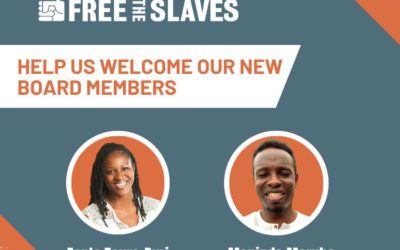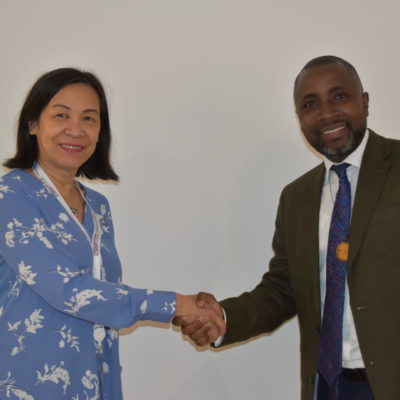Question: What do you call 26 smart, dedicated, energized, motivated and passionate human rights activists gathered together in one room? Answer: a global force for freedom! That’s the takeaway message from our 2017 all-staff retreat, which wrapped up Friday.
Two famous quotes come to mind after our week of strategic planning – which was designed to strengthen our work to end human trafficking worldwide by liberating entire communities from slavery’s grip and changing the conditions that allow slavery to persist.
The first quote is from Nelson Mandela: “It always seems impossible until it’s done.” Board Chair Gregory Haile shared those famous words with staff as we discussed our goal to scale up Free the Slaves global impact.
The other quote, from anthropologist Margaret Mead, has been a guide star for many Free the Slaves staffers since the organization was founded: “Never doubt that a small group of thoughtful, committed citizens can change the world; indeed, it’s the only thing that ever has.”
Our retreat focused on the results of our three-year field test of community-driven anti-slavery work in six countries. Compelling evidence now shows that our model works (more details coming later this year). The challenge ahead is to grow from pilot-project scale. Our strategy will be to persuade large international relief and aid organizations to integrate our community-based anti-trafficking approach into their everyday development programs.
The retreat was also an important moment for staffers to renew their connection to our underlying mission, and to each other.
“I help free people from slavery because my native region in Ghana is a source community for trafficking,” said FTS Ghana Director Joha Braimah. “Growing up, and in my earlier carrier as a teacher, I came face to face with slavery and trafficking. These developments affected me personally and led me into my current field of work.”
“I help free people from slavery because it is the honorable and just thing to do,” said FTS Monitoring, Learning and Evaluation Director Karen Snyder. “I am truly honored to work with colleagues who demonstrate their values in their daily work.”
“I help free people from slavery because my own history lies, in part, within the transatlantic slave trade,” said FTS Manager of Individual Giving Lina Permut. “In those 245 years of American slavery, there were many people working to make a difference. We read about them in history books, we take pride in knowing that their work was not in vain. Regular, everyday people made slavery illegal. I want to be a part of this story. I want to be a part of the end of its practice.”
See how our community focused model saved two dozen boys from slavery in India:



